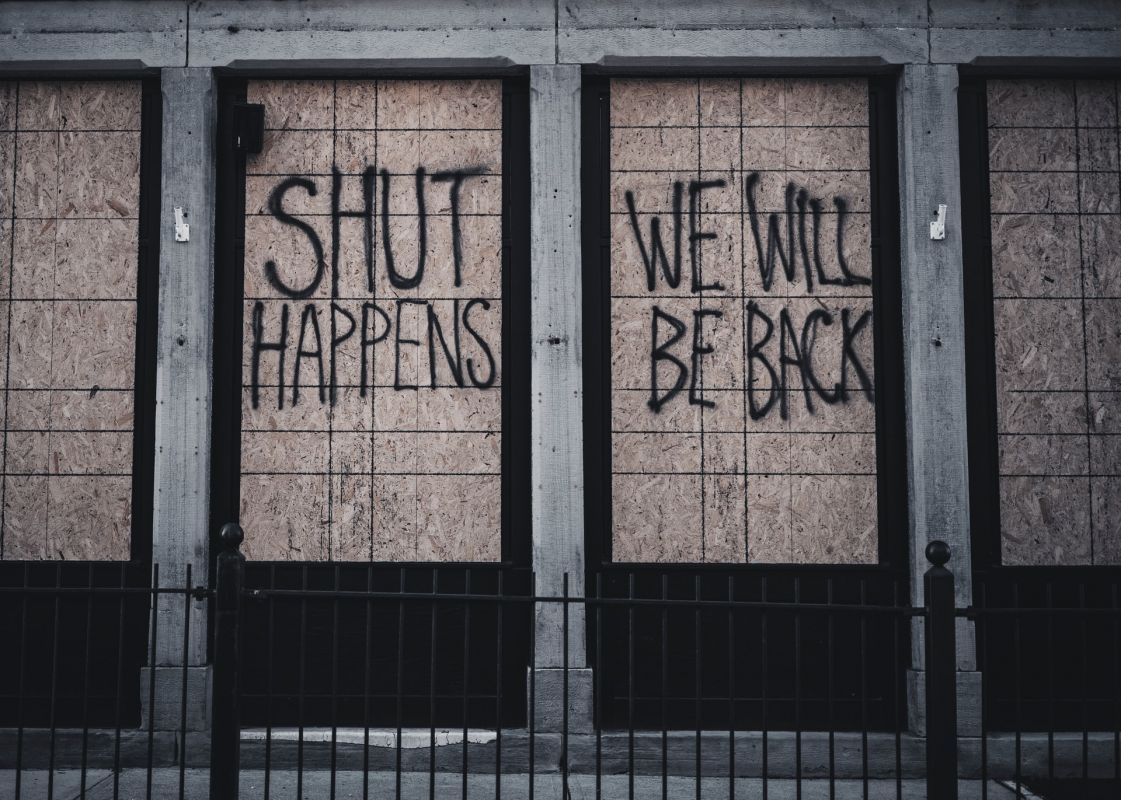
A significant ethical discussion taking place during the COVID-19 pandemic is whether there is a limit to health care professionals’ duty to care for their patients; particularly in light of the scarcity of masks and other personal protective equipment (PPE). However, health care workers are not the only ones struggling with such a question. All essential workers are putting themselves at risk during the pandemic, so does the duty to care, or a similar ethical principle, extend to other essential workers?
Security guards, for example, can play an enormous role in controlling the spread of COVID-19 by enforcing social distancing rules. In some cases their roles have even expanded beyond crowd control to include anything from assisting the elderly to moving bodies from morgues. I worked event security until my company lost 95% of their contracts at the beginning of the pandemic, but within a month I was offered work again. However, given the job requires working in close proximity with many people I had substantial concerns. Security work inherently involves more risk than most professions, but COVID-19 felt extraordinary. Yet security guards, while often underappreciated, are in high demand because of the value we can provide during this pandemic. It is difficult to imagine that in such circumstances we do not possess some degree of social responsibility.
I felt obligated to contribute, but was unsure why. Health care workers have the duty to care because it is deeply embedded in the ethical values of the medical profession. No other profession has a value system so deeply entrenched with such high expectations placed on it. Yet I couldn’t shake the feeling that there was an ethical component to my decision whether to work or not as well.
The most commonly used ethical theories are utilitarianism and deontology. Utilitarianism is what most people are familiar with, and what we tend to turn to in the case of a pandemic. For utilitarians the primary focus is on the outcome; the most ethical choice is the one that will produce the greatest good for the greatest number. For example, if you can save 5 people by killing one, you do it. For deontologists the focus is on rules and is typically duty and obligation bound. The action is more important than the consequences. So because killing someone is wrong, even if you can save 5, it would be wrong.
Utilitarianism and deontology are both very strict, and there is very little ethical leeway; you are either right or you are wrong. Personally I’ve never felt like ethics is that strict. Which brings us to the third ethical theory: virtue ethics. Virtue ethics differs from the other popular moral theories because rather than focusing on what we should do, it focuses on who we should be. So if a virtue ethicist was asked whether you ought to save 5 people by killing 1, the answer would be incredibly dependent on context.
In virtue ethics, the goal is to be a virtuous person, and the decisions you make are reflective of that character. A virtue is a positive character trait like charity, kindness, courage, or honesty. Examples of vices on the other hand, the characteristics you ought to avoid, are cruelty, cowardice, and dishonesty. How you decide on what to do in a particular circumstance in order to achieve such characteristics is somewhat controversial. Many claim that you base your actions on previous examples that you recognize as being good. In the most simple yet highest standard example of that, you could ask yourself “what would Jesus do?”, or whoever you regard as the pillar of morality. Others think the decisions are more along the lines of “if I do this, am I acting justly or unjustly?” and it may not even lead to a response. It is not surprising to find it is often not the most popular ethical theory given its so difficult to apply to specific circumstances, but the idea is if you keep building yourself as a virtuous person, the decisions you make will essentially be the right ones.
In this case I believe virtue ethics is perfect. Most essential workers are not directly faced with a “how many people can I help?” scenario, nor do they have an obligation or duty to help people the way health care workers do, but that does not mean they don’t feel an ethical responsibility to contribute. Feeling the responsibility to help people exhibits virtues like charity and empathy. Actually acting on those feelings at a time like this demonstrates virtues like bravery. From a virtue ethics perspective, essential workers may not have a particular obligation to work, but feeling a sense of social responsibility and acting on it would reflect a virtuous disposition.
This of course, frustrating as it may be for some, depends on context. For me, I live with my parents who are both over 70 and are considered particularly vulnerable to COVID-19. While I feel I ought to contribute, I cannot ignore the risk I would bring to them if I were to be interacting with so many people. I believe that to continue with security work in my case would not be virtuous, but selfish. Such a conclusion may not be supported by the other theories, but I feel confident in my understanding. While virtue ethics is not without its flaws, it has helped me to better myself countless times, and in this case I believe it can help shed light on the ethical questions some essential workers may be facing.





